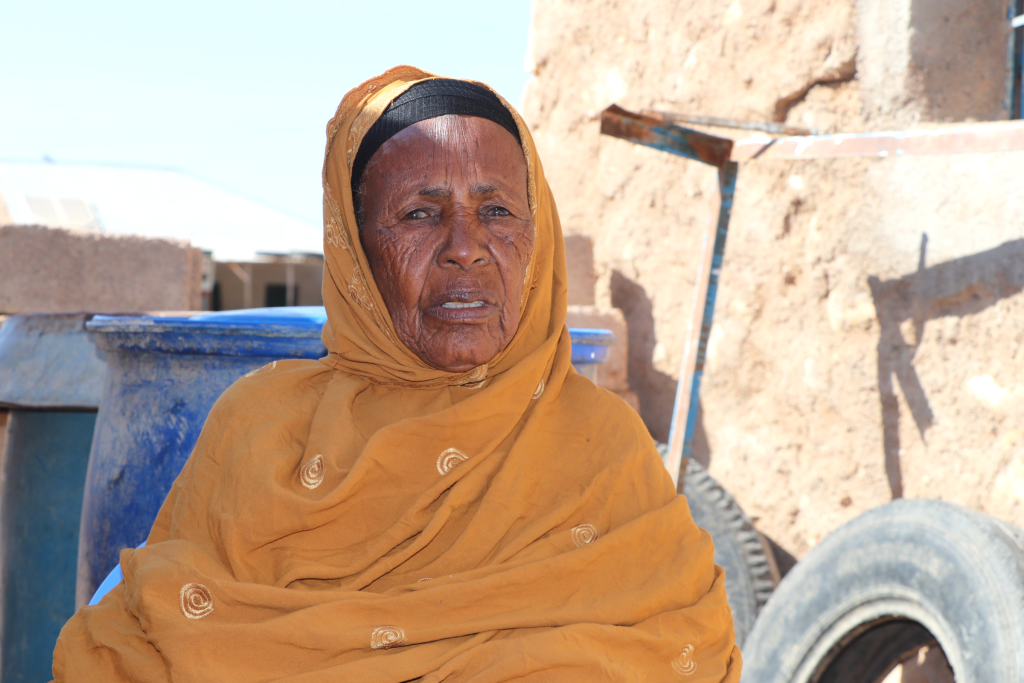Somalia has been ravaged by a devastating drought for the last six years. The once-lush landscapes now lay barren and dry, a testament to the unforgiving power of nature. Among the countless families who have been pushed to the brink of survival is Hawa Ahmed, a resilient mother of eight, who has faced the ultimate challenge of providing for her children.
Hawa’s journey began on the rural outskirts of Somalia, where she and her family lived with their livestock. With every passing day, hope seemed to fade, as the drought showed no signs of relenting. The lack of water and food made it impossible for Hawa to sustain her family’s livelihood. She was torn between her desire to provide for her children and her fear of losing everything.
As the situation grew increasingly dire, Hawa made a bold decision to relocate to Samakab village in search of a better life. With her family in tow, she arrived in Samakab, only to be faced with the harsh reality of their new surroundings. The lack of water sources and drought made it difficult for Hawa to find a way to sustain her family.
Despite the challenges, refused to give up. She was determined to provide for her children, even if it meant facing each new day with uncertainty. Her journey was not without its challenges, however. As a displaced person, she was stripped of her possessions and support system, leaving her feeling anxious and desperate for a solution to their difficult situation.
Hawa was filled with relief and excitement as she joined the program. She had finally found a way to regain control over her family’s destiny. The cash assistance provided by LAGFAR not only helped Hawa’s family access necessities but also gave her the freedom to make choices that prioritized her children’s well-being.
It was then that Hawa discovered the Las Anod and Garowe Food Response(LAGFAR) project by ADRA Somalia and funded by Canadian foodgrain bank (CFGB), an emergency cash transfer project that aimed to provide financial support to families like hers who were affected by drought and displacement. The program was designed to provide cash assistance to families who were struggling to survive, allowing them to purchase essential items like food and water.
With the financial support, Hawa was able to purchase food and ensure access to clean drinking water for her children. She was no longer forced to make difficult decisions between providing for their basic needs and ensuring their well-being. The cash assistance had given her the power to choose what was best for her family.
Somalia has been trapped in an unforgiving cycle that has persisted for the past six years, pushing communities to the brink of survival. Crops withered away under the scorching sun, livestock perished due to lack of sustenance, and water sources turned into mere memories. Somali families, like Hawa’s, were left without their primary sources of income and sustenance.
The drought carried a lot of challenges that transcended the mere absence of rainfall. Environmental degradation caused irreversible damage to the once fertile lands, hindering future agricultural productivity. Water scarcity became a daily reality, forcing communities to travel great distances to access even the most necessities. Hawa, however, refused to succumb to despair, emerging as a symbol of resilience and determination in the face of these adversities.

Hawa’s journey shows a spirit and strength of Somali families affected by the prolonged drought crisis. Through the LAGFAR program and the subsequent cash assistance, Hawa and her family regained a sense of hope, stability, and resilience. As Somalia continues to grapple with the daunting challenges posed by drought, stories like Hawa’s serve as a reminder of the transformative power of support and the unwavering determination of individuals to overcome even the most formidable odds.



